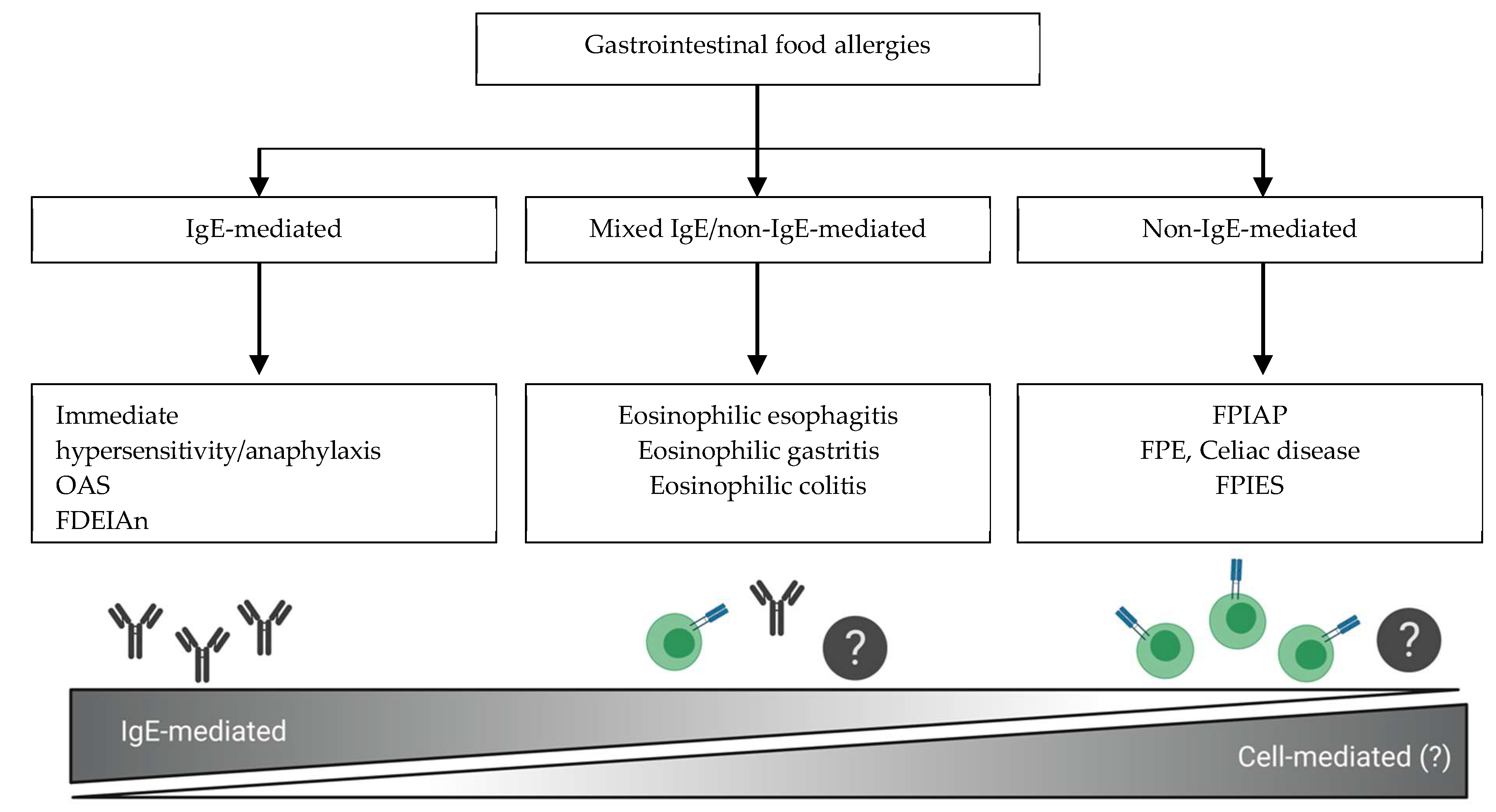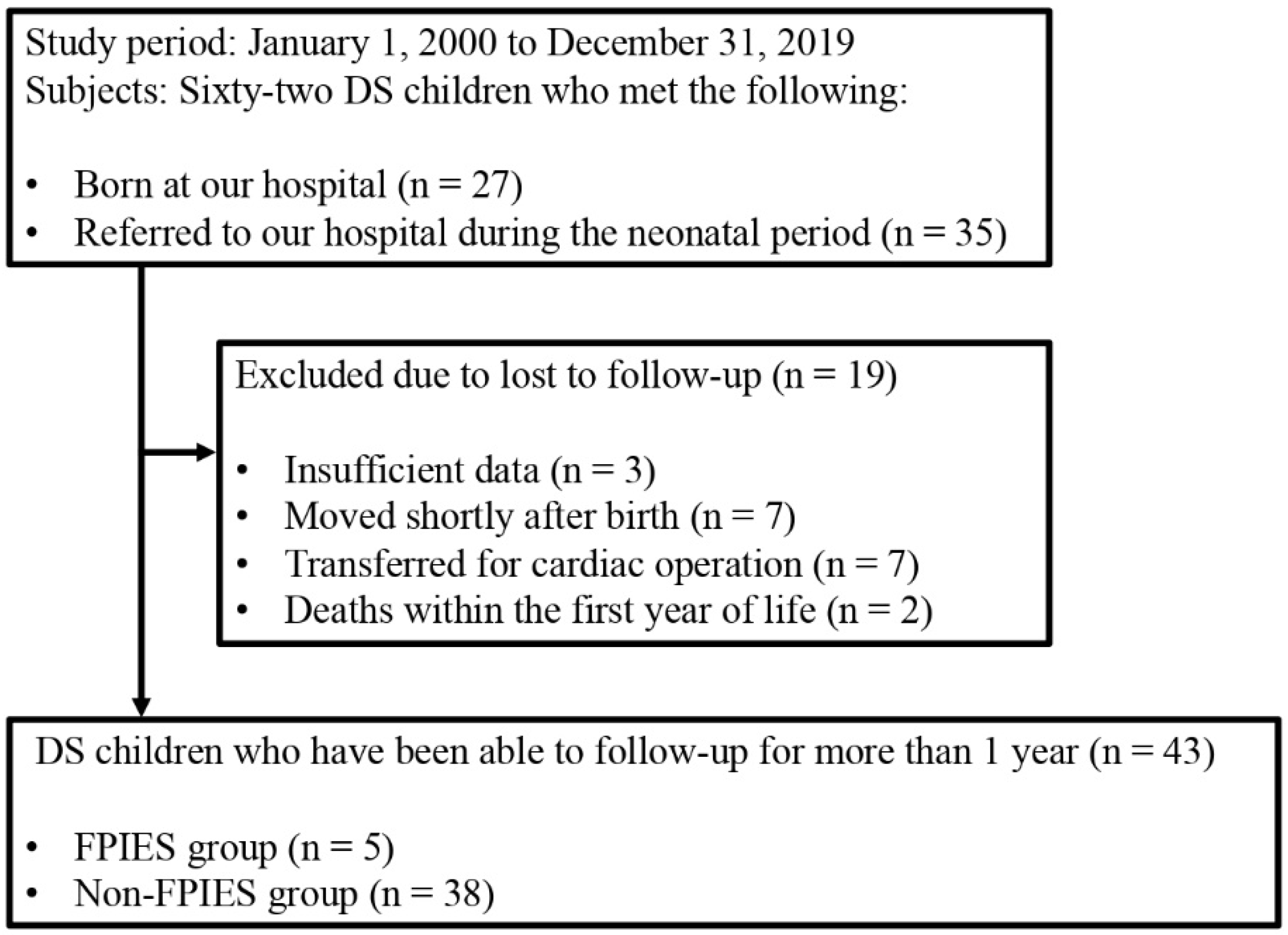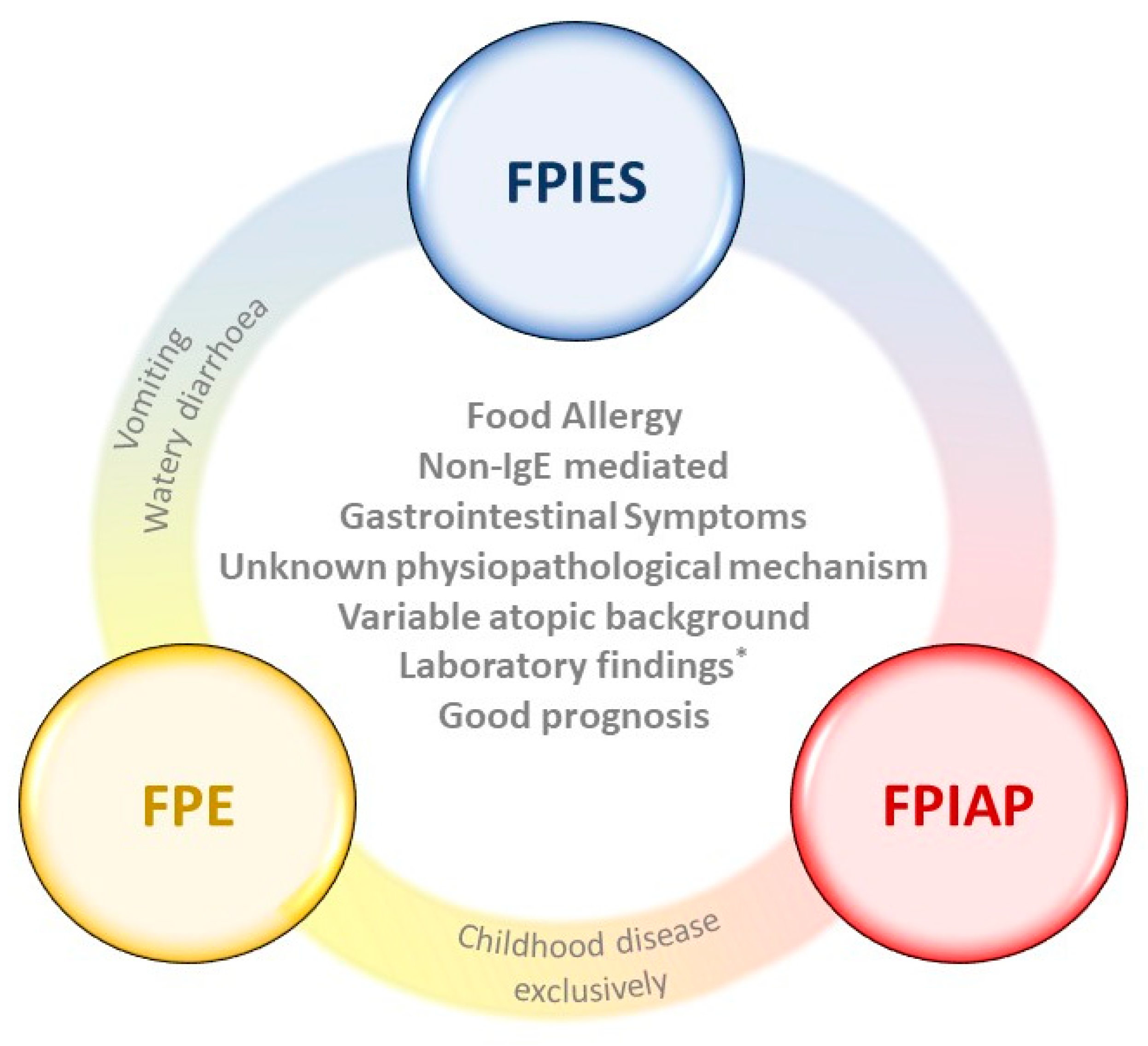food protein induced enterocolitis syndrome in adults
In some cases symptoms can progress to dehydration and shock brought on by low blood pressure and poor blood circulation. Food protein-induced enterocolitis syndrome FPIES is a rare non-immunoglobulin E-mediated gastrointestinal food allergy primarily diagnosed in infancy but has also been reported in older children and adults.

Clinical Types Of Food Protein Induced Enterocolitis Syndrome Fpies Download Scientific Diagram
Food protein-induced enterocolitis syndrome FPIES is a form of non-IgE mediated gastrointestinal food allergy.

. Vomiting and diarrhea may not occur until several hours after the offending food is consumed so a link between the symptom and the food may not be immediately apparent. Many children have only one trigger food and are able to eat a normal diet otherwise. The most common trigger is shellfish followed by fish egg peanuts almonds chicken and dairy.
It typically causes vomiting and bloody diarrhea after consumption of certain foods the trigger foods arent the same for everyone. Food protein-induced enterocolitis syndrome can occur in adults. Severe reactions can prompt a medical.
FPIES mainly affects infant and young children although cases have been reported in adults. J Allergy Clin Immunol. 97 Food protein-induced enterocolitis syndrome FPIES is increasingly recognized 98 in adults with a predominance in women.
Foods are trialed one at a time to identify safe foods vs. Bryan N Fernandes Robert J Boyle Claudia Gore Angela Simpson Adnan Custovic. Epub 2012 Jul 24.
The bad thing about FPIES is that realistically any food can be a trigger. Its pathophysiology is still poorly understood. Instead it can take hours before severe symptoms begin.
Food protein-induced enterocolitis FPIES an entity previously thought to only affect children has been increasingly described in adults. Food protein-induced enterocolitis syndrome FPIES is a potentially severe presentation of non-IgE-mediated gastrointestinal food allergy non-IgE-GI-FA with heterogeneous clinical manifestations. Food protein-induced enterocolitis syndrome FPIES is a non-IgE-mediated gastrointestinal food allergic disorder that has gained a major interest the past decade.
92 93 94 J urn al P e-p roo f 4 Highlights box 95 96 What is already known about this topic. 1 In about 1520 of the reactions severe dehydration with hypotension and metabolic derangements. In this study we report a Canadian cohort of 19 adolescents and adults with recurrent non-immunoglobulin E IgE-mediated gastrointestinal symptoms after crustacean ingestion consistent with FPIES.
Others have a few. Food Protein-Induced Enterocolitis Syndrome FPIES sometimes referred to as a delayed food allergy is a severe condition causing vomiting and diarrhea. If you suspect that your child has symptoms of FPIES see an allergist for diagnosis and treatment.
Unlike most food allergies symptoms of FPIES do not begin immediately after eating. Food proteininduced enterocolitis-like syndrome in a population of adolescents and adults caused by seafood. Food protein-induced enterocolitis FPIES an entity previously thought to only affect children has been increasingly described in adults.
Non-IgE cell-mediated food allergic disorders encompass food protein-induced enterocolitis syndrome FPIES food protein-induced allergic proctocolitis FPIAP food protein-induced enteropathy Heiners syndrome pulmonary hemosiderosis celiac disease and cows milk CM protein-induced iron deficiency anemia. The FPIES Diet. Food protein-induced enterocolitis syndrome FPIES is a non-IgE cell-mediated food allergy that manifests with repetitive projectile vomiting within 14 hours following food ingestion frequently accompanied by pallor lethargy and may be followed by diarrhea within 68 hours.
This is different from the common triggers in kids which are dairy soy oats rice and banana among others. Food protein-induced enterocolitis syndrome FPIES is a non-IgE-mediated food allergy. The term enterocolitis specially refers to inflammation of the small and large intestines.
Acute FPIES reactions typically present with delayed repetitive vomiting lethargy and pallor within 1 to 4 hours of food ingestion. Food protein-induced enterocolitis syndrome FPIES is a condition that occurs in infants and young children although it can rarely affect older children or adults as well. Food protein-induced enterocolitis syndrome FPIES is an uncommon disorder characterized by an allergic reaction to food that affects the gastrointestinal system.
Most of the reactions were due to seafood mollusks crustaceans and fish and egg but other foods like peanut almond mushroom corn chicken and duck were also implicated. 1 2 Because celiac disease is traditionally managed. In this study we report a Canadian cohort of 19 adolescents and adults with recurrent non-immunoglobulin E IgE-mediated gastrointestinal symptoms after crustacean ingestion consistent with FPIES.
The clinical differences with pediatric FPIES warrant a 91 revision of diagnostic criteria in adults. Many allergists report that symptoms suggestive of FPIES are on occasion reported by adult patients and mainly refer to ingestion of seafood. Its symptomatology is restricted to gastrointestinal manifestations and the onset of allergic reaction subsequent to exposure is delayed.
Food protein-induced enterocolitis syndrome FPIES is a rare food allergy that affects the gastrointestinal GI tract. Insufficient data exist in regards to gastrointestinal history and outcome particularly comorbidity family history food aversion and poor body weight gain. Symptoms include severe vomiting and diarrhea and usually occur 2-3 hours after eating a food.
FPIES prevalence which still needs to be accurately determine in different populations appears to be higher than previously thought ie up to 07 in infants in the 1st year of life. Food Protein-Induced Enterocolitis Syndrome FPIES is an inflammation involving both the small intestine and the large intestine colon. When FPIES is finally diagnosed infants are taken off offending foods and exclusively breast fed or given an elemental medical formula.
FPIES symptoms can be very serious and can include turning grey or blue dehydration and even going into shock. Acute FPIES is typically characterized by profuse vomiting and lethargy occurring classically 14 hours after ingestion of the offending food.

Oral Food Challenge In Food Protein Induced Enterocolitis Syndrome Download Table

Nutrients Free Full Text Food Protein Induced Enterocolitis Syndrome In Children With Down Syndrome A Pilot Case Control Study Html

International Fpies Association Facebook
Two Case Reports Of Food Protein Induced Enterocolitis
Food Protein Induced Enterocolitis Syndrome As A Cause For Infant Hypotension The Western Journal Of Emergency Medicine

Nutrients Free Full Text Non Ige Mediated Gastrointestinal Food Allergies In Children An Update Html

International Consensus Guidelines For The Diagnosis And Management Of Food Protein Induced Enterocolitis Syndrome Executive Summary Workgroup Report Of The Adverse Reactions To Foods Committee American Academy Of Allergy Asthma Immunology Journal

Clinical Types Of Food Protein Induced Enterocolitis Syndrome Fpies Download Scientific Diagram

Managing Food Protein Induced Enterocolitis Syndrome During The Coronavirus Disease 2019 Pandemic Annals Of Allergy Asthma Immunology

Food Protein Induced Enterocolitis Syndrome The Journal Of Allergy And Clinical Immunology In Practice

References In Food Protein Induced Enterocolitis Syndrome Not So Rare After All Journal Of Allergy And Clinical Immunology

International Fpies Association Facebook

Dietary Management Of Food Protein Induced Enterocolitis Syndrome During The Coronavirus Disease 2019 Pandemic Annals Of Allergy Asthma Immunology

Foods Free Full Text Non Ige Mediated Gastrointestinal Food Protein Induced Allergic Disorders Clinical Perspectives And Analytical Approaches Html

Food Protein Induced Enterocolitis Syndrome Oral Food Challenge Annals Of Allergy Asthma Immunology

Gastrointestinal Immunopathology Of Food Protein Induced Enterocolitis Syndrome And Other Non Immunoglobulin E Mediated Food Allergic Diseases Sciencedirect

Food Protein Induced Enterocolitis Syndrome Annals Of Allergy Asthma Immunology